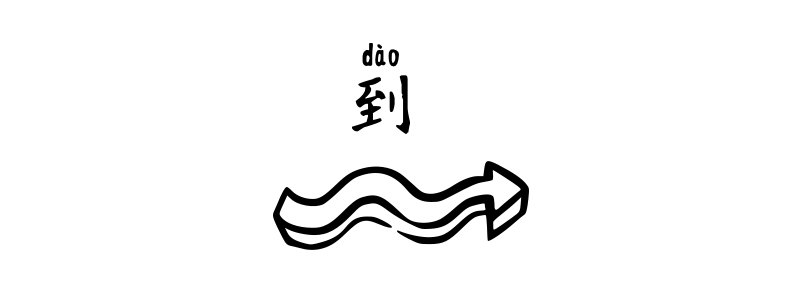Grammar Point:When reading or listening to Chinese, you might notice that sometimes very short words are used instead of the full forms of “if” and “but.” Two common examples are 若 ruò for “if” and 可 kě for “but.” They come from literary Chinese and add either a formal touch or a strong, punchy feeling depending on the context….
Author: tiffany
Indirect Object Marker – 給 gěi
Grammar Point:In Chinese, “給给 gěi” isn’t just used to mean “to give.” It also works like a bridge between the action and the person who receives that action. We call this person the indirect object. When 给 gěi is used this way, it’s called an Indirect Object Marker — it shows who you’re doing something for or to. Structure S + V + 給给 gěi + Recipient + Direct…
Indirect Object Marker 给 gěi
Grammar Point:In Chinese, “給给 gěi” isn’t just used to mean “to give.” It also works like a bridge between the action and the person who receives that action. We call this person the indirect object. When 给 gěi is used this way, it’s called an Indirect Object Marker — it shows who you’re doing something for or to. Structure S + V + 給给 gěi + Recipient + Direct…
Resultant Location with Verb + 在 zài
Grammar Point:In Chinese, when you want to tell someone where to put something or where something ends up after an action, you use the pattern “Verb + 在 zài.” This is called a Resultant Location structure. It shows the final location of an object after an action is done. Structure Knowing Object + V + 在 zài + Location This structure…
Moving on an Object with 把 bǎ
Grammar Point:There are 3 functions of 把 bǎ in Chinese. Determination, command, and doing a movement on something that makes a change to it. And since 把 bǎ cannot be translated into English, many English speakers feel awkward using it. But it is a piece of grammar that Chinese native speakers use a lot in…
Say A, then A – 說 shuō A 就 jiù A
Grammar Point:The Chinese structure 說说 shuō A 就 jiù A means doing something immediately after saying it, often without any hesitation, planning, or discussion. It can also express surprise or admiration at someone’s quick action, or be used to criticize someone for acting too impulsively. Structure 說说 shuō + V + 就 jiù + V…
Chinese Slang – 智商税 zhìshāng shuì
智商税 zhìshāng shuì N. (Literal meaning is “IQ tax”) 智商税 zhìshāng shuì is a slang term used online in Chinese to describe money people spend because they were gullible, uninformed, or tricked — basically, they “paid the price” for not being smart or skeptical enough. 買mǎi這zhè種zhǒng幾jǐ千qiān塊kuài的de保健bǎojiàn品pǐn根本gēnběn沒méi用yòng, 純粹chúncuì是shì在zài交jiāo智商稅zhìshāngshuì买mǎi这zhè种zhǒng几jī千qiān块kuài的de保健bǎojiàn品pǐn根本gēnběn没méi用yòng, 纯粹chúncuì是shì在zài交jiāo智商税zhìshāngshuìBuying this kind of expensive health supplement is totally useless — it’s…
There is A, and there is B too – 有 yǒu A 有 yǒu B
Grammar Point:The 有 yǒu A 有 yǒu B pattern is a concise and expressive grammatical structure in Chinese that uses parallel construction to indicate the presence of multiple elements or a comprehensive range. It’s important to note that this structure isn’t something you can just use with any words — it’s usually limited to a…
No A, no B – 沒 méi A 沒 méi B
Grammar Point:沒 méi A 沒 méi B, literally “no A, no B,” is used to emphasize a complete lack of certain things—usually two related nouns or qualities—and is often spoken in a casual, emotional, or disapproving tone. It’s important to note that this structure isn’t something you can just use with any words — it’s…
Destination Marker 到 dào
Grammar Point:In Chinese, the movement marker 到 dào is used to indicate the completion or arrival of an action or movement to a particular destination. Structure S + 到 dào + Place + (Do what) It’s often used with verbs of motion, such as 來来 lái (to come), 去 qù (to go), or other action…








